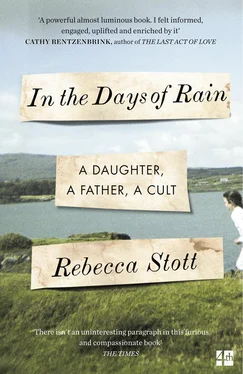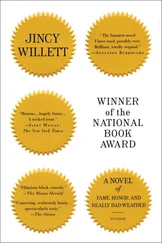Poor Tristram finds he’s written several hundred pages before he’s even been born. Convinced that the oddities of his personality were caused by the fact that his father was interrupted while having sex with his mother on the night of his conception by his mother asking if he had forgotten to wind the clock, Tristram then has to explain about the clock, and to do that he has to explain about Uncle Toby, his father’s brother … and while he is trying to explain all of this, and as the pages are mounting up, there’s a knock at the door and Death is there on the threshold – cloak, scythe and all. Tristram leaps from the window and gallops to Dover to take a boat to Calais. Death takes up pursuit.
I took the bus from my house into town to buy a portable tape recorder.
‘If I ask you questions,’ I said to him as he disappeared into another cricket match, ‘it might be easier. You wouldn’t get so tired. Then I could transcribe it later. We could do short bursts, when you felt like it.’
I had bought a black tape recorder. Out in the Mill dust coated everything in hours, and I had to keep wiping the machine down. The dust bothered me. I’d never noticed it before. Dust and, even in March, fruit flies. The house was full of them. My father had started to keep a tally of the number he’d find in his wine glass. The fruit fly count joined all the other reckonings in his notebooks: daily calorie counts, his gambling winnings and losings, the daily diabetes count, the cricket scores. My stepmother just put an old beermat over her glass. She didn’t much like wine.
But although the tape recorder had been easy enough to choose in the department store that day, I hadn’t anticipated that the tapes would stupefy me. How many did I need? They came in packs of four or eight or twelve. Each of them could hold eight hours of recording. How long did he have? How far would he get? I stood in front of the display case in the shop for twenty minutes trying to do multiplication sums in my head. I picked up three packets of twelve: thirty-six tapes. That was 288 hours; 17,280 minutes.
I now have two tapes in my study drawer, next to the old tape recorder. One is full, the other only partly full. I gave the unused ones away. My father got from 1960 to 1966, two years after my birth. He ran out of time. Like Tristram Shandy, like the knight in The Seventh Seal , he didn’t get to finish his story once Death had got into the house.
What he had to tell me was far worse than I could have imagined. No wonder he’d got stuck.
When we began, I pictured my father and me in that thicket together, with scythes, torches and protective clothing, and then, triumphant, finally scaling the castle walls. We’d do whatever was needed – cut through the thorns, slay the dragon, rescue the princess – together . But we didn’t make it.
Day by day he grew quieter. His reclining chair remained in its horizontal position and his morphine-induced sleeps lasted longer. I slipped the tape recorder and the pack of tapes into the back of the cupboard where he kept his dusty film collection and his store of Spanish reds.
In the fourth week of his six weeks of dying, my father, laid out at the centre of the Mill tower, opened his eyes and summoned my brother and me, his executors. He had already given me instructions about what to do about his memorial stone, the funeral, and his extensive debts. He was struggling hard to surface from his drug-inspired dreams, to keep his eyes open, to sit up. We moved in closer.
‘This is very important,’ he stressed, raising an arm from the bed and jabbing his finger into the air with all the strength he had, his white beard and hair wild, his jaundice-yellowed eyes bloodshot.
‘You can’t leave any of those bastards alone with me when I’m asleep. You understand? You know what they’re like. They’ll take advantage. They’re like vultures.’
He knew all too well from his fifteen years as a ministering brother in the Exclusive Brethren that the distant family members who were now visiting every day as the end grew nearer would want to pray over him, help him find his way back to the Lord. He was having none of that.
Dutifully, we warned the cousins who came carrying Bibles and hymnbooks. How do you tell a Christian not to pray? What else were they supposed to do? Leave the dying man to the tortures of hellfire?
We asked them to respect his wishes. They were offended and baffled. They’d driven a long way. Many had got lost when their GPS systems had begun to tell them to turn around and make for the nearest road. They drank tea and examined the strange pagan grotto of the Mill and its many false idols. I watched a distant cousin run her eyes down the lines from Four Quartets my father had pasted above the door, her brow furrowed.
He was right to warn us to be vigilant. Despite our requests, there were two or three times when we dropped our guard. On one occasion we saw the lips of one of the visiting cousins, a kind elderly woman, pressed up against my father’s ear, while he lay commanding the room even in sleep, laid out like a fallen tree or an oversized, dusty and yellowing tomb effigy. She was whispering to him.
‘Excuse me,’ my brother said, glancing anxiously at me, embarrassed. ‘Please don’t do that.’
The promise we’d made had probably already been broken.
We never left him alone with visitors again. His eyes flickered open once to tell me as I leant across him that I was so beautiful . He woke another time to implore me to keep the scale of his gambling debts secret from my stepmother. On the night before the equinox I left the house for the first time in weeks. I’d been invited to interview for a job I’d applied for months before at the University of East Anglia. The nurse had taken me aside.
‘I’m sure he’d want you to go,’ she said. ‘He’d want you to have a good shot at it.’
From a building on the Norfolk campus, surrounded by lush green hummocks overrun with rabbits, I rang my brother every two hours. I stood in the empty toilet trying to apply make-up to my swollen face minutes before the interview, talking to my father in the mirror.
‘You’ve never been arrogant enough,’ I heard him say to me as he’d so often done. ‘Be arrogant. Nail it.’
When I got back late that night, my brother told me my father was still alive, although the nurse had said he probably wouldn’t last to the morning. I volunteered to take the night watch. No one argued; they were all exhausted. My father’s breaths rattled, paused, rattled, gasped, and began again.
‘Get him to let go ,’ my brother whispered, after my stepmother had left the room. ‘He’ll listen to you.’ He helped me drag the sofa across the room so that I could sleep next to my father’s reclining chair, and then my brother was gone, the lights in the house out.
The wind rattled the windows. It was snowing again. I steadied my breathing in the darkness to match my father’s breaths; I held my breath when his stopped. I told him about the interview. I told him I’d been arrogant, that I’d done a good job. Then I told him he could let go. Immediately I wished I hadn’t said it.
My mobile rang. It was an old friend who I’d not heard from in years. He was walking home from a pub through the snow along a riverbank in the southern fens, he told me. He’d called to find out if I was all right. Startled by the sound of my sobs and my father’s laboured breathing, he stayed on the phone, talking softly about anything that came into his head until the first birds began to sing, when I finally fell asleep.
When the vice-chancellor rang early the next morning to offer me the job, I asked if I could have a few days to get back to him. My father was about to die, I said. About to die struck me as an odd phrase. I wanted to tell him how strange it was to watch death fighting to take possession of a body, of how my father’s body and the blackening ridges of his fingernails made me think of the colour and texture of a felled oak I’d once seen out on the fens, but instead I said thank you . I told him that I was, of course, delighted . I would get back to him. I just needed to attend to this particular day. Take your time, he said. Take as much time as you need.
Читать дальше












